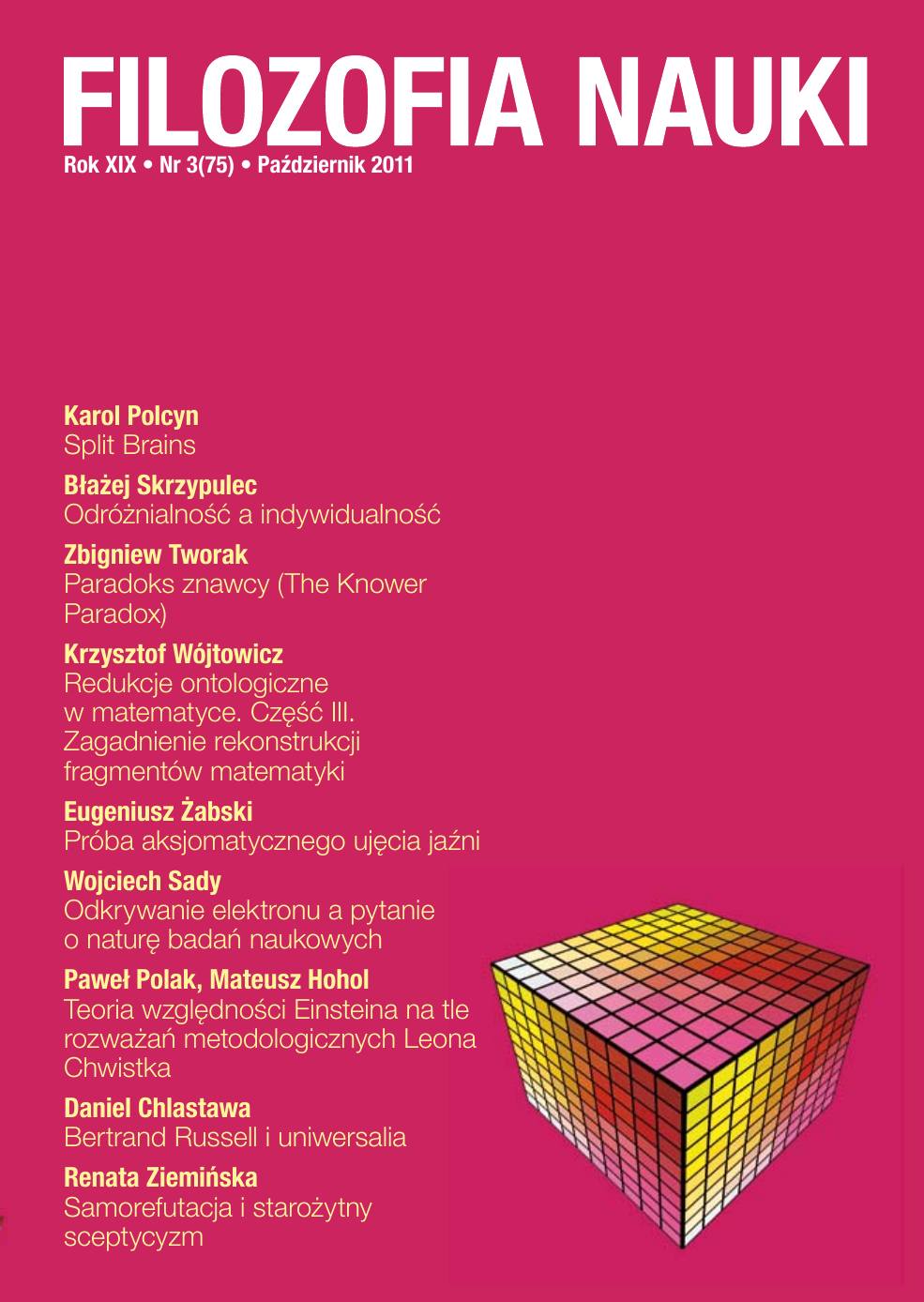The Knower Paradox
Keywords:
Knower Paradox, knowledge, self-reference, arithmetic, provability logicAbstract
The Knower Paradox is an element of the class of paradoxes of self-reference. It demonstrates that any theory Ó which (1) extends Robinson arithmetic Q, (2) includes a unary knowledge predicate K, and (3) contains certain elementary epistemic principles involving K is inconsistent. In this paper I present different versions of the Knower Paradox (both in the framework of the first-order arithmetic and in the modal logic). There are several solutions of the paradox. Some of them I discuss in detail, namely solution developed within modal logic, solution proposed by C. A. Anderson and solution proposed by P. Égré. The common defect of these proposals is that they developed a connection between the concepts of knowledge and provability. Finally, I suggest a solution using the basic ideas of the revision theory of definitions.Downloads
Published
2011-09-01
How to Cite
Tworak, Z. (2011). The Knower Paradox . The Philosophy of Science, 19(3), 29–47. Retrieved from https://fn.uw.edu.pl/index.php/fn/article/view/648
Issue
Section
Articles















 Filozofia Nauki/The Philosophy of Science | ISSN 1230-6894 | e-ISSN 2657-5868
Filozofia Nauki/The Philosophy of Science | ISSN 1230-6894 | e-ISSN 2657-5868